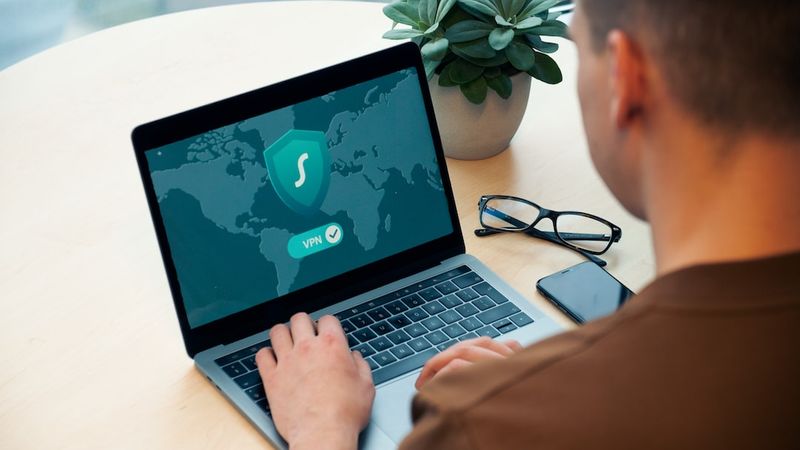UK Minister Warns Meta Over End-to-End Encryption
Raising Concerns over Children’s Safety
Britain’s interior minister, Suella Braverman, and security minister Tom Tugendhat have cautioned tech giant Meta, which owns Facebook, Instagram, and WhatsApp, against implementing end-to-end encryption on its platforms if it compromises children’s safety. Braverman emphasized the importance of strong encryption for online users but emphasized that it should not come at the expense of protecting children from abusers. The ministers called on Meta to collaborate with law enforcement agencies to ensure they can access necessary data.
The Safety versus Privacy Debate
The issue of end-to-end encryption and its impact on national security, online safety, and personal privacy is a complex one that has sparked intense debates worldwide. On one hand, end-to-end encryption is a critical tool for protecting individuals’ privacy, securing their data, and preventing unauthorized access to their communications. It safeguards against hackers, fraudsters, and criminals who seek to exploit vulnerable users. Moreover, encryption is often essential for activists, journalists, and dissidents operating in authoritarian regimes, ensuring their safety and freedom of speech.
However, the implementation of end-to-end encryption also presents challenges for law enforcement agencies. Without access to encrypted communications, it becomes more difficult for these agencies to identify and prevent criminal activities such as child exploitation, terrorism, and organized crime. Encryption can potentially hinder investigations, making it harder to hold criminals accountable and protect the most vulnerable members of society.
The Need for a Balanced Approach
Finding the right balance between privacy and security is crucial in navigating this complex landscape. It is essential to recognize that the debate should not be framed as a binary choice between absolute privacy or absolute security. Rather, it requires a nuanced approach that takes into account the interests of all stakeholders.
Social media companies like Meta have a responsibility to ensure user privacy and security while also cooperating with law enforcement agencies to protect vulnerable individuals, especially children. Collaboration should involve the development of effective safeguards and technological solutions to prevent abuse and identify criminal behavior without compromising overall security or undermining encryption principles.
Security Measures and Meta‘s Response
Meta, in response to the concerns raised by the British ministers, highlighted that the majority of Britons already rely on encryption to protect them from various online threats. They emphasized their commitment to maintaining robust safety measures to combat abuse while still upholding online security.
Meta outlined some updated safeguarding measures, including restrictions on communication between adults and teenagers who do not follow each other and employing technology to identify and take action against malicious behavior. These measures aim to strike a balance between protecting user privacy and ensuring the safety of vulnerable individuals.
The Importance of Collaboration and Responsible Encryption
It is essential for technology companies, governments, and law enforcement agencies to foster open dialogue and cooperation to address the challenges posed by end-to-end encryption. Building trust and understanding between these stakeholders is crucial to develop effective solutions that prioritize both privacy and security.
Responsible encryption practices can be one way forward. This involves striking a balance between safeguarding user privacy and enabling necessary access for law enforcement purposes. While it is challenging to achieve such a delicate equilibrium, it is not impossible. By implementing responsible encryption, technological companies can provide an added layer of protection while also enabling law enforcement access in legitimate cases.
The Role of Regulation and International Cooperation
Regulation can play a significant role in ensuring a responsible approach to encryption. Governments should work in collaboration with technology companies to establish clear guidelines and standards that address the concerns of all stakeholders. This can help strike a balance between privacy and security, while also ensuring accountability and transparency.
Furthermore, international cooperation is vital in addressing the global nature of online threats. Governments and tech companies should collaborate on a global scale to develop common protocols and strategies that prioritize both privacy and security. This cooperation can help mitigate potential risks associated with end-to-end encryption while protecting the rights and safety of individuals worldwide.
Editorial Opinion
The debate surrounding end-to-end encryption is a critical one, with significant implications for individual privacy, national security, and the fight against online abuse. As technology continues to advance, it becomes increasingly important to find a balanced approach that upholds both privacy and security.
While the concerns raised by the British ministers are valid, it is crucial to avoid knee-jerk reactions that could compromise individual privacy rights and the overall security of online communications. Collaboration between governments, tech companies, and law enforcement agencies is key to finding solutions that preserve privacy while enabling effective investigations into criminal activities.
It is essential to recognize that encryption is not solely used by criminals but benefits individuals and organizations worldwide. The advantages of end-to-end encryption in securing personal data, protecting free speech, and fostering a safe online environment should not be overlooked.
Advice for Users
In light of the ongoing debates surrounding encryption, it is crucial for individuals to take control of their online security. Users should prioritize their privacy by adopting good security practices, such as:
1. Strong Passwords
Choose unique, complex passwords for your online accounts and consider using a password manager to help you remember them.
2. Two-Factor Authentication (2FA)
Enable 2FA whenever possible to add an extra layer of security to your accounts. This can help protect against unauthorized access even if your password is compromised.
3. Regularly Update Software
Keep your devices and applications updated with the latest security patches to ensure that you are protected against known vulnerabilities.
4. Be Cautious with Personal Information
Avoid sharing sensitive personal information online unless necessary. Be mindful of the information you provide and who has access to it.
5. Educate Yourself
Stay informed about current internet security issues and best practices. Educate yourself on encryption and its role in protecting your privacy online.
By taking these steps, individuals can enhance their online security while still benefiting from the convenience and privacy that encryption provides. It is crucial to remain vigilant and proactive in safeguarding personal information and devices in an increasingly digital world.

<< photo by Dan Nelson >>
The image is for illustrative purposes only and does not depict the actual situation.
You might want to read !
- The Rise of the Resilience Revolution: Shifting Defensive Tactics into Offensive Actions
- Navigating the Regulatory and Legal Quagmire: MGM and Caesars Seek Solutions Following Cyber Incidents
- CrowdStrike to Strengthen Cybersecurity Capabilities with Acquisition of Bionic
- Malicious Malware: Unraveling Transparent Tribe’s Deceptive YouTube Tactics
- Beware: CapraRAT Exploits YouTube to Hijack Android Devices
- Niagara Networks and Scope Middle East Form Groundbreaking VAD Partnership
- Messaging Apps Take a Stand: Default End-to-End Encryption Becomes the New Normal
- Securing Conversations: Google Messages Implements Cross-Platform End-to-End Encryption with MLS Protocol
- The Game-Changer for Google Messages: Enhanced Security with Cross-Platform End-to-End Encryption and the MLS Protocol
- The Invasion from Within: Unmasking China’s Linux Backdoor Espionage Campaign
- Cyber Warfare Escalates: Unveiling Operation Rusty Flag’s Devastating Blow to Azerbaijan
- US Space Industry: The Growing Threat of Foreign Espionage
- The Cyber Crime Frontier: Unveiling the Conspiracy Behind Clorox Product Shortage




